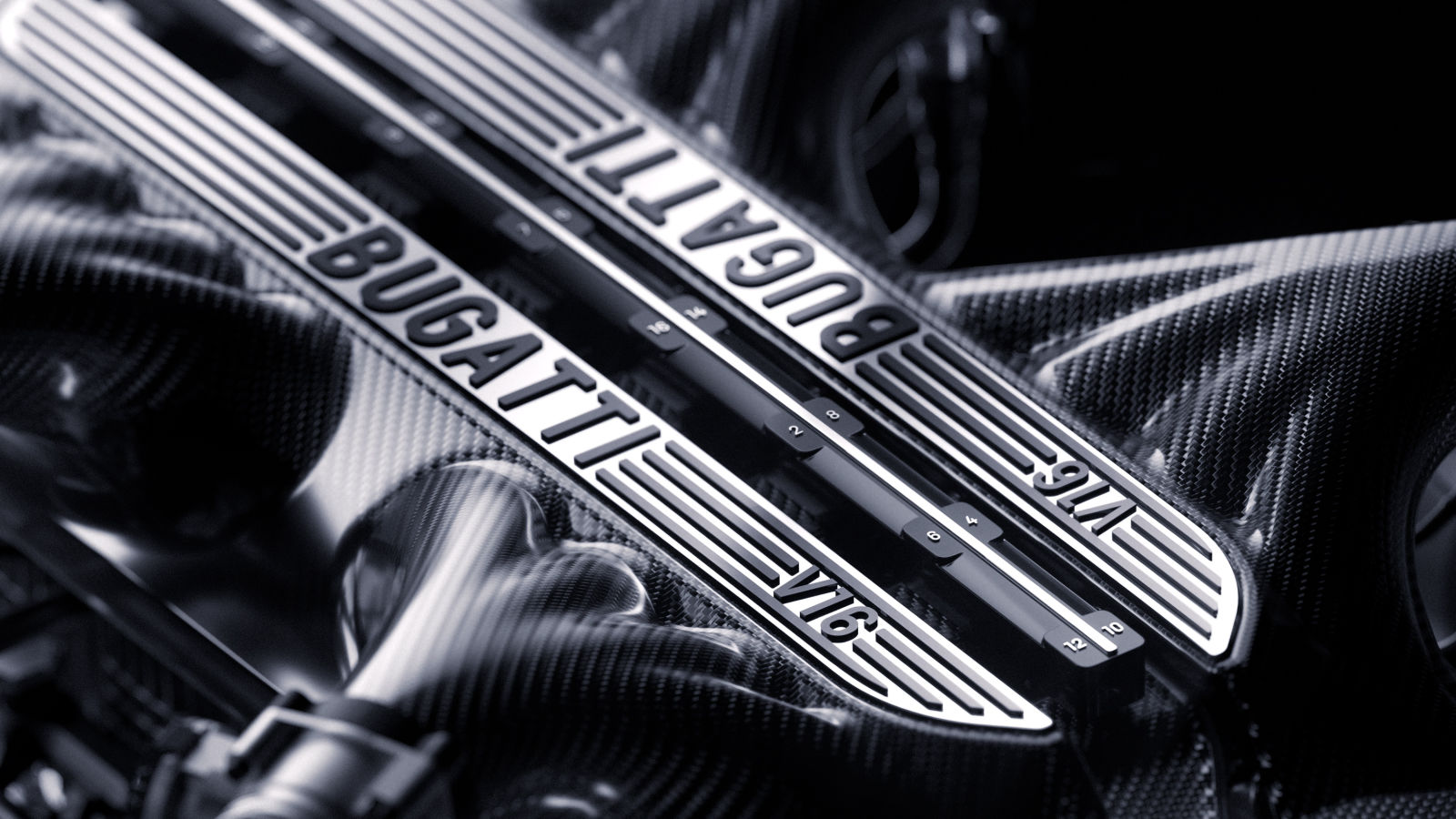
Bugatti likes to be at the cutting edge; we saw it with the Veyron, we saw it with the Chiron, and we could be seeing it again with the V-16 hybrid powertrain the French luxury automobile manufacturer will be putting in its next creation. While you may have spotted something like this before, notably powering the W-16 Mistral and Chiron Super Sport, we can assure you haven’t.
The current engine is laid out in a W configuration, so picture two V6 engines stuck together. The motor featured in Bugatti’s next hypercar is in the V configuration. As for what else we know, information is pretty sparse beyond the fact that the new vehicle will be announced in June 2024. Bugatti has also included the words: “Incomparable in every detail, it is a pure embodiment of Bugatti’s DNA, created not just for the present, or even the future – but “Pour l’éternité.” So it’s likely they’ll want you to talk about whatever it is they come out with for a very long time.
Bugatti’s announcement was made eight years to the day after the Chiron made its debut. While details about the next generation of Bugatti’s hypercars is also sparse, it’s safe to say that the new V16 will be sitting in front of (or maybe in the middle of) the manufacturer’s next generation of vehicles. Given the length of an engine with eight cylinders on each side, Bugatti’s new beast will also take up a lot of room — wherever they end up sticking it.
In terms of potential power, information is again non-existent as things stand. As we’re talking about a hybrid engine with 16 cylinders, it will likely pack a punch. Whether that’s on par with the 1,577 horsepower produced by the Chiron Super Sport’s powertrain remains to be seen — but it is worth noting that Bugatti’s numbers tend to go up, not down.
It may power another record-breaker
So far, Bugatti has produced the fastest car on the road no less than three times. The Veyron took the crown in 2005, the Veyron Super Sport reclaimed it in 2010, and the Chiron Super Sport is the current record holder in many people’s estimations. That may change soon, as Hennessey’s Venom F5 aims to rip past the 305 mph mark this year, becoming the world’s fastest production car. A Bugatti showing up to retake that title almost immediately afterward would not be the strangest thing that’s ever happened.
John Hennessey, the hypercar maker’s founder, namesake, and CEO, isn’t too worried. He seems to welcome the challenge from the French automaker, stating: “I hope that Bugatti joins the party too – it’s rivalries like this that fuel our passion and drive us to go faster, innovate more, and push harder.”



